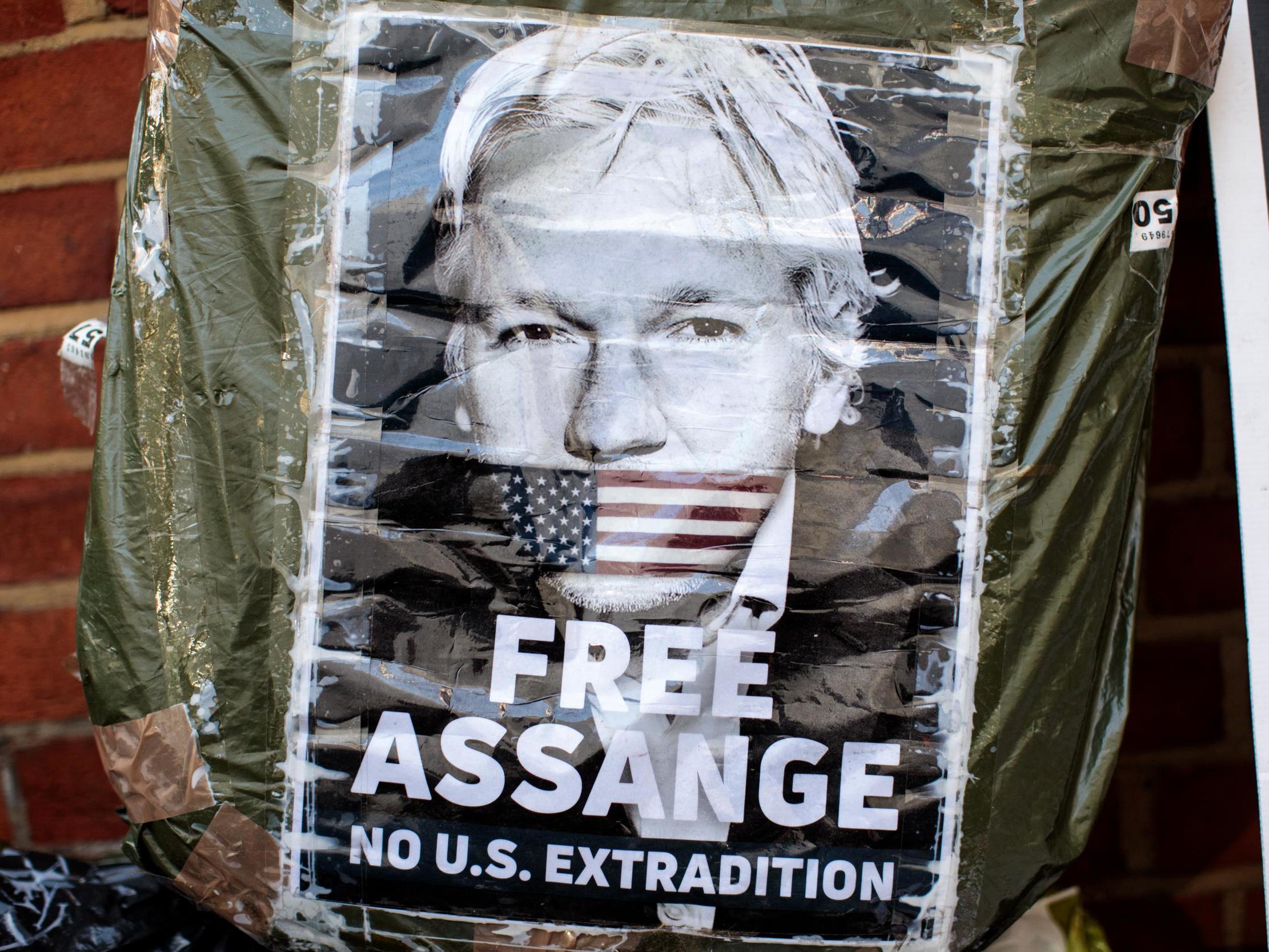Julian Assange: US submits formal extradition request for WikiLeaks founder
Treaty bars United States from prosecuting for crimes beyond those included in solicitation

The US Justice Department has delivered to officials in the United Kingdom a formal extradition request for Julian Assange, making further US charges against the WikiLeaks founder unlikely.
A US official who spoke on background to discuss a sensitive matter said the request was sent on Thursday.
The United States’ treaty with Britain required that the request be sent within 60 days of Assange’s 11 April arrest at Ecuador’s Embassy in London.
The same treaty bars the United States from prosecuting Assange for any alleged crimes beyond those outlined in the extradition request, unless those acts occur after his extradition.
In an 18-count indictment filed last month, prosecutors charged Assange with violating the Espionage Act and conspiring to hack into a government computer.
The Justice Department did not pursue Assange for the 2017 exposure of Central Intelligence Agency hacking tools known as “Vault 7”, according to government officials, out of concern that doing so would do more damage to national security.
Joshua Adam Schulte, a former CIA employee, is accused in New York federal court of leaking that information to WikiLeaks.
A grand jury investigation of Assange has remained active in recent weeks.
Former Army intelligence analyst Chelsea Manning, whose interactions with Assange form the basis of the charges against him, remains in jail for refusing to testify before the grand jury.
Sigurdur Thordarson, a former WikiLeaks associate who became an FBI informant, says he voluntarily met with prosecutors in Virginia late last month and was asked detailed questions about Assange’s relationships with hackers.
A spokesman with the US attorney’s office in Alexandria declined to comment on Mr Thordarson’s account.
When Assange was arrested, US officials indicated that they would seek his extradition, which he has been fighting from jail in London.
He is serving a 50-week sentence for fleeing to the Ecuadorian Embassy in 2012 rather than face sexual assault charges in Sweden.
He missed a scheduled court hearing last week because of illness, his lawyers told reporters.
He is still under investigation for rape in Sweden, although a court there recently ruled that he should not be extradited.
A 12 June hearing is set for Assange in the United Kingdom.
Washington Post
Join our commenting forum
Join thought-provoking conversations, follow other Independent readers and see their replies
Comments